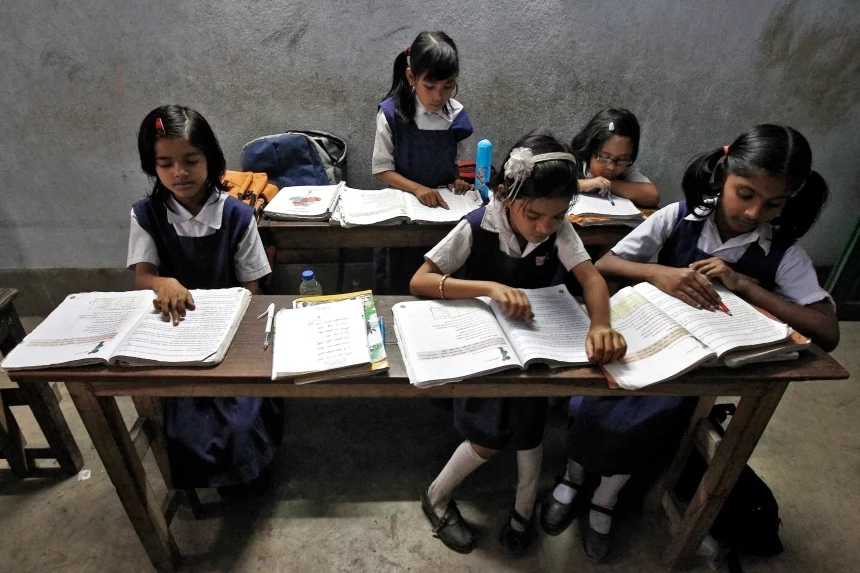Does India’s education system need reform? The Indian education system has faced persistent criticism for prioritizing rote learning and an excessive focus on exam scores, often neglecting the cultivation of practical knowledge and critical thinking skills. This issue worsens due to a lack of consistency, highlighted by differences between education boards and the contrasting characteristics of free and paid education. The resulting strain on students, coupled with insufficient infrastructure and financial burdens on parents, underscores the urgent need for reform.
Does India’s education system need reform?
Yes, the Indian education system undeniably requires substantial reforms to align itself with the demands of the rapidly evolving global landscape, particularly in the tech era.
Issues with the Indian Education System
- Diversity in Boards and Quality Disparity: India boasts multiple education boards, each with its own set of standards and curriculum. While free education in the mother tongue exists, the quality is often subpar. Norms followed by reputed schools cater primarily to the affluent, perpetuating inequality.
- Financial Burden on Parents: The constitutional promise of free education often remains elusive, as parents find themselves burdened with exorbitant fees from primary to high school. Private schools proliferate without effective government oversight, further exacerbating the financial strain on families.
- Early Academic Pressure: Children as young as three are subjected to heavy bags, long hours, and rote learning. The focus on academic achievement leaves little room for extracurricular activities or the overall development of a child’s creativity and talents.
- Inequality in Career Aspirations: The system reinforces social and economic disparities by directing some children towards lucrative careers, while others from less privileged backgrounds face limited opportunities for higher-paying jobs.
- Lack of Facilities: Many schools lack basic facilities like playgrounds and toilets, subjecting children to physical and mental stress. The absence of a conducive learning environment hampers the overall well-being of students.
Measures for Reform
- Uniform Education System: India needs a standardized education system that is compulsory and free, providing equal opportunities for all. The government should take control of private school establishments to ensure affordable and quality education.
- Focus on Practical Knowledge: The education system should prioritize practical knowledge and creative learning. Reforms must shift the emphasis from exam-oriented learning to holistic development, fostering critical thinking and problem-solving skills.
- Teacher Recruitment and Training: Efforts should be directed towards recruiting and training passionate teachers. Teachers play a pivotal role in shaping a child’s education, and their commitment to the profession is crucial for the success of any educational reform.
National Education Policy 2020
The National Education Policy 2020 presents a comprehensive vision for transforming the education system. Key features include:
- Open Schooling System: Aiming to bring two crore out-of-school children back into the mainstream.
- School Governance Reform: Introducing a new accreditation framework and an independent authority to regulate both public and private schools.
- Assessment Reforms: Implementing a 360-degree Holistic Progress Card to track student progress.
- Early Vocational Education: Starting vocational education in Class 6, integrating internships into the curriculum.
Government Initiatives
Several government initiatives, such as the National Programme on Technology Enhanced Learning, Sarva Shiksha Abhiyan, PRAGYATA, Mid Day Meal Scheme, Beti Bachao Beti Padhao, and PM SHRI Schools, aim to address various challenges in the education sector.
The Way Forward
- Experiential Learning Approach: Inclusion of problem-solving subjects in the curriculum to provide hands-on learning experiences.
- Implementation of National Education Policy: Urgent implementation of NEP 2020 to modernize and revitalize the education system.
- Education-Employment Corridor: Integration of vocational learning with mainstream education and proper mentorship to guide students toward suitable careers.
- Reducing Language Barrier: Giving equal importance to Indian languages and translating resources to ensure linguistic diversity.
- Learning from the Past: Drawing inspiration from the ancient Gurukul system, emphasizing holistic development, ethics, and value education.
The challenges in the Indian education system demand immediate attention and comprehensive reforms. The government’s initiatives, coupled with the National Education Policy 2020, provide a blueprint for transformation. By prioritizing practical knowledge, standardizing education, and fostering an inclusive learning environment, India can harness the potential of its youth, ensuring they are well-equipped for the challenges of the future.


